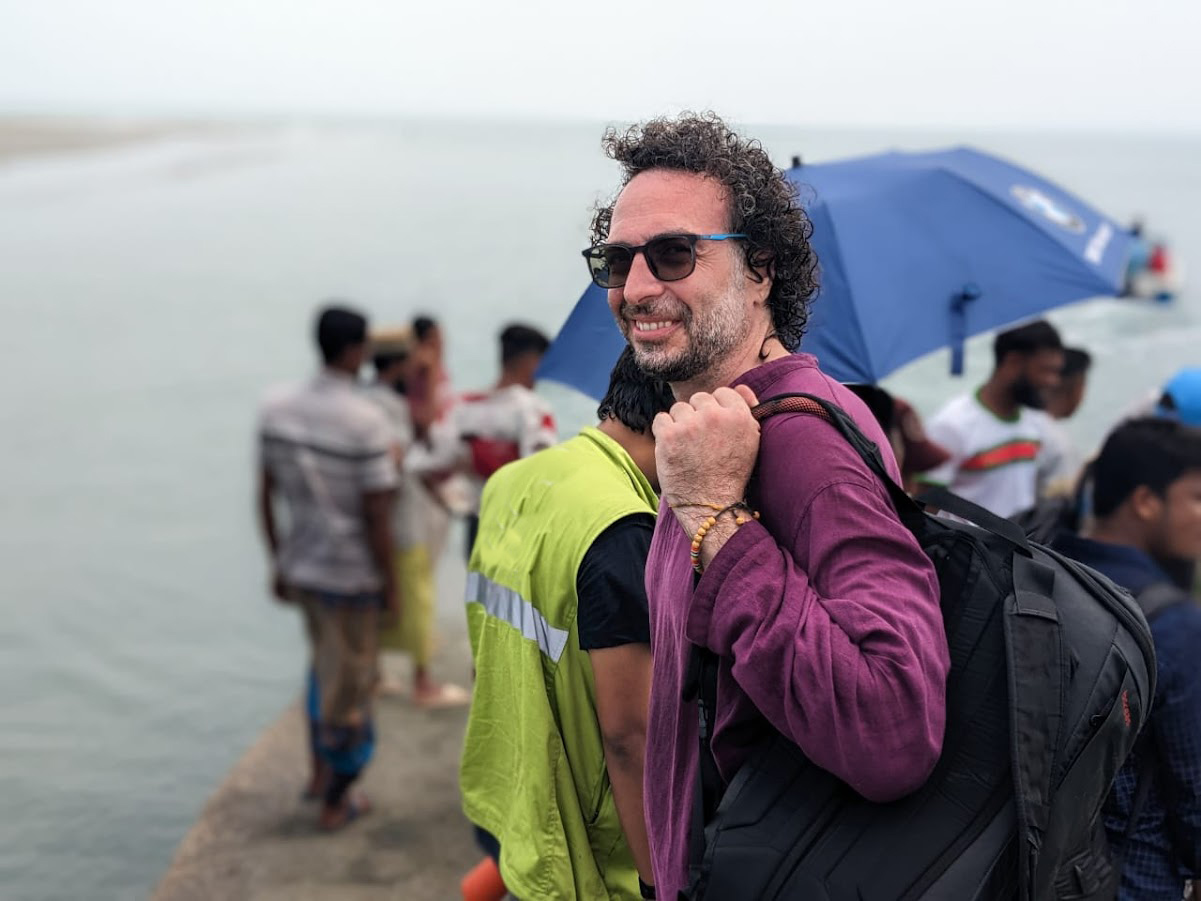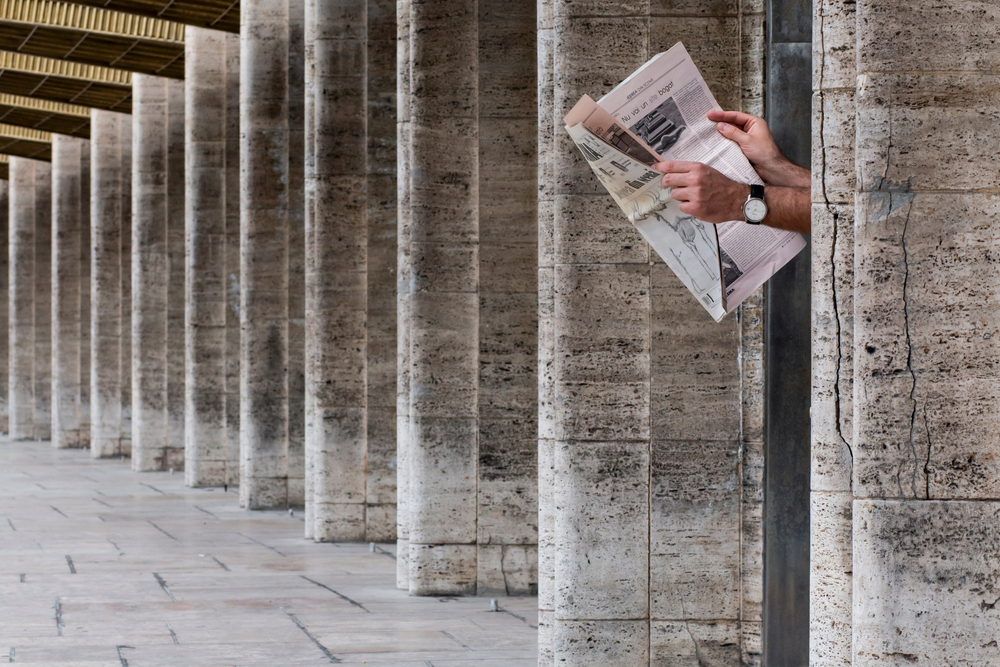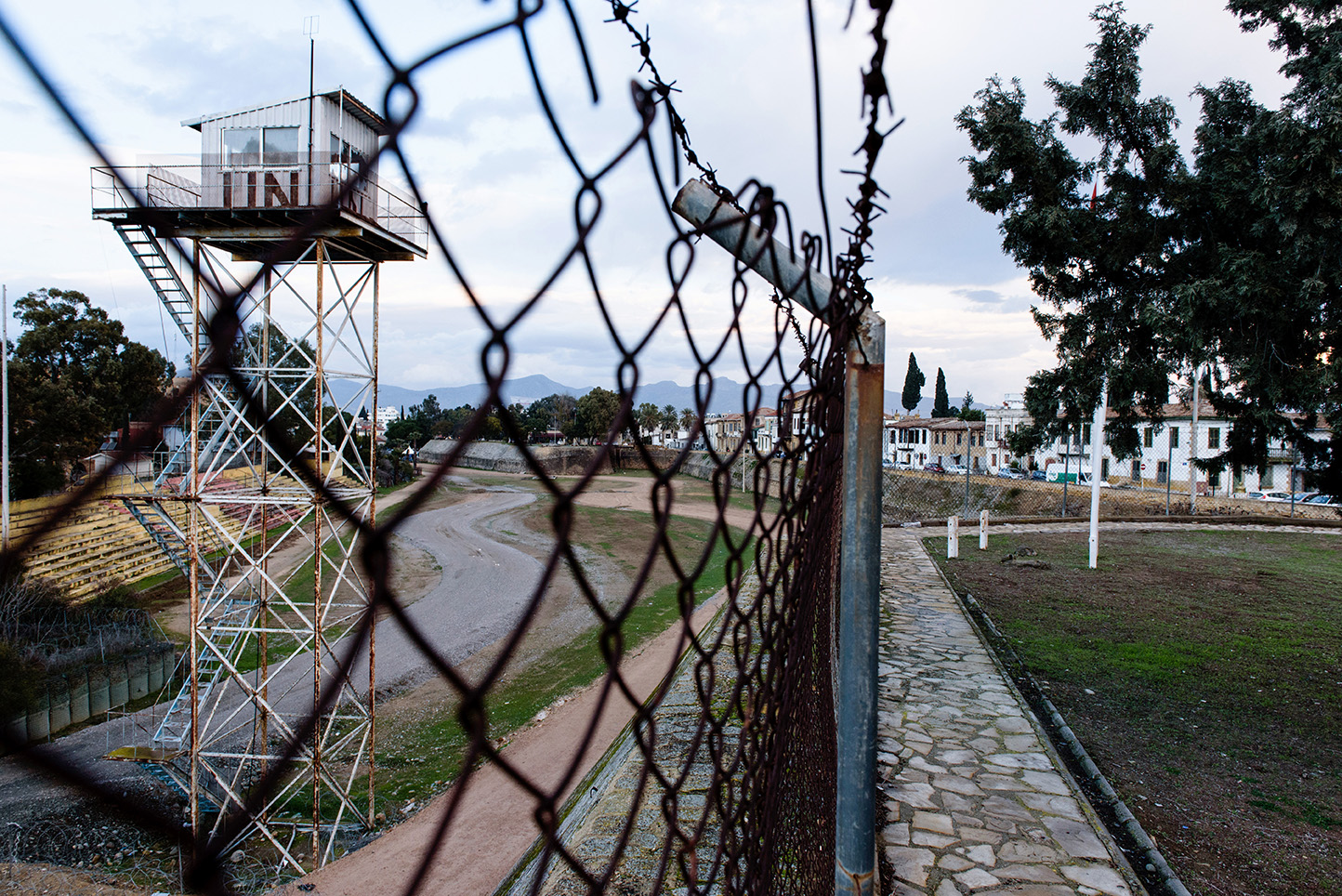From Sarajevo to Gaza: Bridging memories of siege with a call for conscience and action
Boris is leaving for Gaza with other activists on the Sumud Flotilla. His motivation is his witnessing the siege of Sarajevo as a young man and his great frustration today, as a humanitarian professional and an Italian-Bosnian citizen, at not being able to deliver aid to Gaza. A reflection on humanitarian law and being an activist

From-Sarajevo-to-Gaza-Bridging-memories-of-siege-with-a-call-for-conscience-and-action
Boris in Bangladesh during a humanitarian action © Mahamuda Khanam
I carry the memories of Sarajevo under siege – days without water and electricity, the hollow eyes of people who had long forgotten the taste of bread, children playing under shelling and sniper fire, and constant threats at distribution queues. A siege is not just war; it is the slow, deliberate crushing of a people.
What is happening in Gaza is not so different. The parallels are not exact – no two sieges ever are – but certain patterns in the intent are recognizable: collective punishment of civilian populations, the normalization of starvation, and the erosion of humanity.
The International Court of Justice (ICJ) issued a series of provisional measures – more than 1 year and 8 months ago – requiring Israel to prevent irreparable harm to civilians by enabling basic services and humanitarian assistance across Gaza. These orders are binding on the parties and authoritative for the international community’s response, underscoring the State’s obligation to avert starvation under the Genocide Convention and IHL. Their thrust is not political; it is prophylactic: prevent famine, protect civilians, and restore legality.
However, Gaza today is enduring deliberate deprivation, with indicators that meet or even exceed famine thresholds in parts of the territory. According to UN agencies and leading NGOs, since October 2023 more than 61,000 Palestinians have been killed, with at least 18,430 children among the dead, while 2024 was the deadliest year on record for journalists (85 killed in the Israel–Gaza war, roughly two-thirds of the 124 journalists killed worldwide) and the highest UN staff death toll in history, including hundreds of UNRWA personnel.
To these numbers that shatter modern records for civilian harm, we must still add hospitals, schools, and water systems – objects protected under international humanitarian law – that have been systematically devastated. WHO reports 94% of hospitals damaged or destroyed (only 19 of 36 even partially functioning); the UNICEF-led Education Cluster finds nearly 90% of school buildings damaged or destroyed; and Oxfam documents the wrecking of ~1,675 km of water and sanitation networks, with some areas surviving on ~5.7 litres per person/day – barely a single toilet flush.
The UN Human Rights Office has warned that Israel’s repeated use of heavy 2,000 lb bombs in dense urban areas raises grave concerns about distinction, proportionality, and precautions—the core jus in bello protections of IHL. In scale and intensity, UN Special Rapporteur Francesca Albanese notes that ~85,000 tons of explosives—roughly six Hiroshima bombs’ worth of destructive power—have been unleashed on Gaza, one of the world’s smallest and most densely populated places.
Taken together – mass civilian and child deaths, record killings of journalists and aid workers, and the destruction of hospitals, schools, and water networks – this is what OCHA, WHO, MSF, Oxfam, and UN experts describe as a sustained pattern of devastation that violates the very safeguards international humanitarian law was created to uphold. All these repeated denials of basic services effectively invert jus in bello protections, establishing “reasonable grounds” to argue that genocide thresholds may be met, as eloquently documented in the report Anatomy of a Genocide (March 2024) by UN Special Rapporteur Francesca Albanese.
And what of all the humanitarian aid made available by international solidarity? Deconfliction systems intended to protect the movements of aid and humanitarian workers are faltering. Human Rights Watch has documented multiple incidents in which aid convoys or premises – whose coordinates were shared with the Israeli army – were struck without warning, emblematic of structural flaws that place aid workers and civilians at risk.
The deepest moral and professional wound of a humanitarian worker is to see places marked as safe zones or humanitarian distribution sites becoming zones for the concentration and extermination of civilians. MSF’s August 2025 report – This is not aid. This is orchestrated killing – tells us GHF-run sites funnel desperate civilians into kill-boxes. Survivors describe sniper fire, drone strikes, and mass casualties.
This paradox must be spelled out: a “state-controlled” aid architecture, absent independent, rights-based oversight, has morphed into a mechanism of “orchestrated killings,” and humanitarian distribution sites into killing-zones. To rely exclusively on these militarized channels as the sole means of delivering aid to starving civilians is an act of complicity in starvation. We must categorically reject weaponized “humanitarianism” and insist on neutral, protected corridors under independent, rights-based oversight.
We – the international humanitarian system – have always had the capacity to deliver needed aid; we have lacked leverage. The past months have shown us that diplomacy without leverage is just theatre. Waiting for perfect consensus among states is, functionally, permission for preventable death.
If the law’s remedies are acknowledged but never enacted, we face a moral failure: a system that records atrocities it will not deter. When formal mechanisms collapse and protection obligations go unmet, nonviolent civic action is not a substitute for law—it is a summons to it.
My boarding of the flotilla is not an act of defiance, but of duty: a duty to uphold international obligations when enforcement falters, a duty to affirm principles when institutions fail. Nonviolent civil action is not an alternative supply chain; it is an ethical accelerant to legality. The Global Sumud / Freedom Flotilla is a civic summons to implement the ICJ’s orders and to restore UN-coordinated access. It is a call to reassert moral imperatives when states and institutions have abandoned them.
Nonviolent flotillas are acts of principled escalation, not militarized breaches. When humanitarian channels collapse, citizens asserting maritime corridors are invoking universal norms of relief at sea, openness, and transparency. Such acts do not seek confrontation, but conscience: placing human suffering in full view of the world, pressing law and politics alike to respond. Our aim is not conflict, but access—and to honor the dignity of civilians not as passive recipients of charity, but as fellow human beings entitled to life.
As Stéphane Hessel reminded us, the worst attitude is indifference. Indignation must organize itself, nonviolently, into action. If you can watch a child starve and still calculate the politics—
If you can cite the law but not enforce it—
If you can condemn genocide but not act to prevent it—
Then you have not yet understood what humanity requires.
I will sail so the law is not merely written, but enacted.
I will sail in solidarity with civilians under siege.
I will sail because solidarity demands action.
I will sail to stand against indifference.
I will sail because I remember.
I will sail because Gaza’s children deserve more than our pity.
They deserve our outrage – and our courage.
And yet I go with calm, with purpose, equipped with clarity and de-escalation, with open hands and a steady gaze. I carry the voice of Sarajevo’s victims to Gaza’s own: bridging past siege and present blockade, hoping to prove that conscience still breathes in the face of calculated desolation.
So I board, not to challenge weapons, but to confront indifferent silence. I sail – not in anger, but in love. Not in hate, but in solidarity. The flotilla is not the end – it is the means to wake the world.









